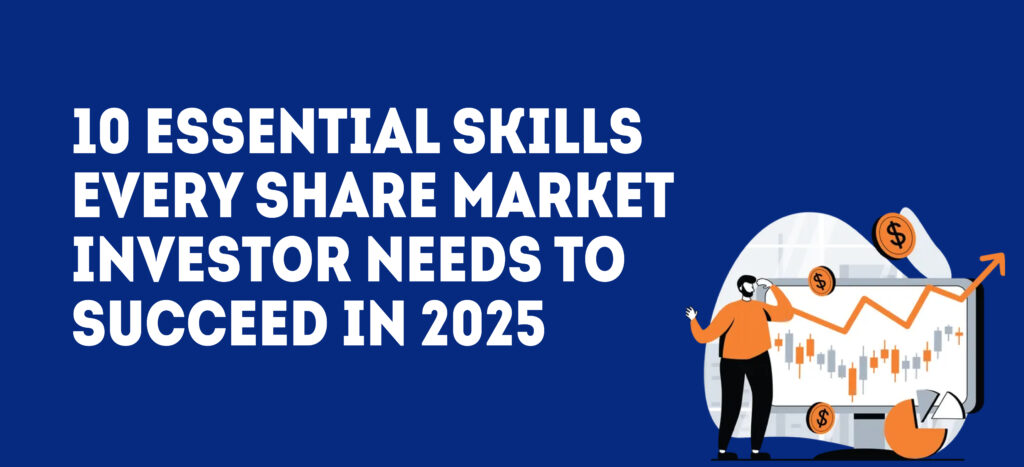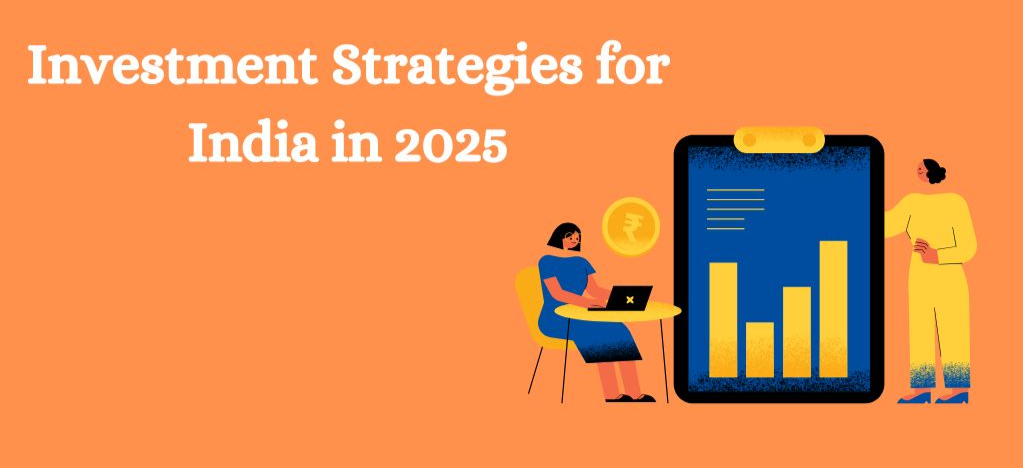The global supply chains are the invisible strands that bind the producer, the supplier, the manufacturer and the final user in the world. When such threads are broken because of pandemics, wars, or natural calamities the impact is felt not only in production but also in the financial markets. This is one of the most visible consequences of a change in the stock price of various sectors.
In this blog, we shall discuss the effects of global supply chain disruptions on the stock markets in terms of how the sectors have performed and investor responses. This case study is good and right in time in case you are studying using Stock Market Courses in Pune.
What Are Global Supply Chain Disruptions?
Disruption in the supply chain takes place globally when a break or a substantial reduction happens in the transportation of goods and services across geographical boundaries. It may be caused by:
- Natural Disasters (e.g., earthquake, floods)
- Political tensions and wars
- Pandemics like Covid-19
- Shipping delays and labour shortages
- Trade regulations or sanctions
Such interferences bring in bottlenecks and increase the cost of operation and most of the time lead to less revenue to the companies that rely a lot on the international supply chains.
How Supply Chain Disruptions Affect Stock Prices
In the event of supply chain failure, businesses will incur higher costs, lost revenues as well as a low rate of production, which all deteriorate profits. This would dent the confidence of investors that is bound to see the stock prices to decrease.
Such macroeconomic news will be familiar to traders and investors who have undertaken Stock Market Courses in Pune as it is directly related to sentiment within the market and value. To illustrate, a technology firm announces delays in the production process because of a chip shortage and the share falls in hopes that the company might have less profit.
Do you know that due to the supply chain disruptions research in the stock market is needed, so that you know where you are going and you can make informed decisions when needed. Read our blog on “Research in Stock Market Trading: Make Informed Decisions” to know more about it.
Sector-Wise Impact Analysis
Not all industries may be equally impacted by world supply chain interruptions, some industries may be more exposed to the instability of global supply and logistic dependencies. However, let us now see how various industries react to such upheavals and how their stock prices are affected real-time.
1. Automotive Industry
The automobile sector is one of the most affected ones, and it highly relies on just-in-time manufacturing and worldwide suppliers of important components to its industry, such as semiconductors. Chip shortages also meant that giants such as Ford and Toyota had to stop their production, causing temporary falls in the stock levels.
Students in our Stock Market Institute in Pune often analyze such sectoral impacts to understand market rotation strategies.
2. Technology Sector
Technological firms such as Apple and Samsung depend on the extensive number of components which they import all over the world. The closure of Asian ports in the period of pandemic slowed down production and launching of the major products. The result? Short-term fluctuations in the securities and swings in the optimism of investors.
The fact that this sector can recover following disruption and result in the rebound of stock prices provides saving grace to informed investors also.
3. Retail and Consumer Goods
Large retailers like Walmart or Amazon rely on foreign suppliers. In case of disruption in supply the process of delivery is hit negatively, which carries implications on the satisfaction of the consumer and revenue earned in major sale periods.
During these periods, professionals who study Best Stock Market Classes in Pune get to know how to analyze their earnings reports and the holding quantity of their inventory to predict a stock price.
4. Pharmaceuticals
India is the largest producer of active pharmaceutical ingredients (APIs) of which many are exported to other places in the world. Companies in the US and Europe can experience raw material shortages when disruptions are witnessed in the supply, and this has an impact on the production schedules, and it also has implications on the value of their stocks.
We are taught how to interpret between the lines in the earnings calls and industry news at Our Institute to predict such movements.
5. Energy and Commodities
Oil and gas rely so much on logistics across the world. Such incidents as war between Russia and Ukraine, and attacks on ships in the Red Sea resulted in the skyrocketing oil prices and energy company stocks, such as ExxonMobil and BP.
Learning on the influence of geopolitical occurrences on this sector is one of the components of our curriculum in Stock Market Courses in Pune.
To know more about the emerging in India’s stock market. You can read our blog on “Emerging Sectors in India’s Stock Market for Long-Term Grow” to know more about.
Historical Case Studies: Stock Movement During Key Disruptions
The historical events of disruption are also good at giving insights on how stock markets respond when they are under pressure. The source materials may be such real-life examples as pandemics, geopolitical conflicts, etc., which identify sectorial effects and provide concrete recommendations to traders and investors.
COVID-19 Pandemic (2020)
In March 2020, massive global shutdowns led to the historical crash of the market. The most affected sectors were travel and automotive, whereas the tech stocks returned to their previous high rapidly.
Suez Canal Blockage (2021)
When one vessel held up an important international commerce route, the journey of goods was delayed for several weeks, leading to decreases in stocks of logistics, commercial, and manufacturing companies.
Russia-Ukraine Conflict (2022)
It caused huge shocks in energy and commodity flows. There was a surge in stocks of the defensive sectors, oil, and agriculture and there was a drop in European manufacturing industries.
These instances are exploited a lot during our lessons in Wealth Note to provide practical risk analysis.
How Investors React to Supply Chain Disruptions
The response of investors to this kind of happening normally encompasses:
- The sale of stocks in the weak sectors (e.g. travel, automotive)
- Rotating into down-trodden defensive sectors (utilities, healthcare)
- The growth in the trading of commodity futures such as oil and metal products
- Excessive volatility index such as the VIX
These strategies are covered in detail in the Best Stock Market Classes in Pune, helping learners make informed decisions during crises.
How Companies Are Responding
In an effort to reduce risks in disruptive future, most firms are:
- Bringing back production or nearshoring Back local production to within the country
- Supplier bases diversification
- Keeping in the excess as buffer stock
- Forecasting supply chain with AI
Such moves often stabilize stock prices and restore investor confidence over the medium term. Understanding this trend helps investors identify turnaround opportunities.
Key Takeaways for Traders and Long-Term Investors
- Pay special attention to the news on the supply chains, particularly, in the spheres, where global dependency is the rule.
- Consider sector rotation, in times of crisis defensive sectors tend to outperform.
- Invest the money to diversify to protect against impulsive upheavals.
- Follow subsequent earnings calls and updated guidance, as they tend to indicate the extent to which the current supply-chain headaches have affected their performance.
Whether you’re a beginner or advancing your skills at a Stock Market Institute in Pune, these strategies can help you make smarter investment decisions.
Conclusion
The impacts of global supply chain disruption extend beyond being a logistical nightmare, but rather potent events capable of changing market dynamics in sectors. Delay in production, shortage in the market of consumers and other ripple effects which may be experienced will in most cases reach the stock market to instigate price changes either sharply upwards or downwards.
We stress on real time analysis of the market and field exposure to our Stock Market Courses in Pune at Wealth Note. Unless you have an interest in developing a profession in trading or long-term trading, grasping macroeconomic trends such as these is crucial.
Ready to Learn More?
Take part in the Pune Best Stock Market Classes with Wealth Note and acquire hands-on experience to understand the volatility, anticipate, and take the appropriate action to succeed in the stock market. Regardless of whether you are a working professional or a student, our modules of experts can train you on how to go about the real world market situations without getting intimidated. Contact us now at +91 7068001919 and control your future financial situation.
Frequently Asked Questions
What is the impact of supply chain disruption in the world on prices of stock?
Ans – The cost of production increases globally, shipments are delayed, and the company profits become affected. This causes reduced confidence among investors, and lower stock value, particularly in worldwide connectivity. A case study in point is that real-life Stock market behavior cannot be understood without learning these dynamics in the event that you are Taking Stock Market Courses in Pune.
Which sectors are most affected by supply chain disruptions?
Ans – The sectors that have been most affected are automotive, technology, retail, pharmaceutical and energy. Such industries are dependent on international sourcing. In Pune we have our Stock Market Institute where we teach students how to evaluate how these dependences have translated into the movement of the stock prices of these industries.
How can I use this information as an investor or trader?
Ans – It is possible to rotate your portfolio in times of disruption by determining the sectors that are harmful at that moment of disruption. It is an essential teaching method in the Best Stock Market Classes in Pune where we assist the learner in taking advantage of the world news in making more intelligent investment choices.
Are supply chain disruptions temporary or long-term threats to the market?
Ans – Occurrences causing disruptions such as temporary closures in various ports can be temporal, whereas other disruptions such as geographical tensions or pandemics can cause long-lasting market volatility. In our Stock Market Courses of Pune, our Institute focuses on learning the short term and long term consequences as well.
Can I learn to analyze such impacts through stock market education?
Ans – Yes. We provide real-life training at Wealth Note and this is done through the Best Stock Market Classes in Pune. You will be able to assess such economic risks as the disruption of supply chains and be able to trade and invest accordingly with what you have learned.






